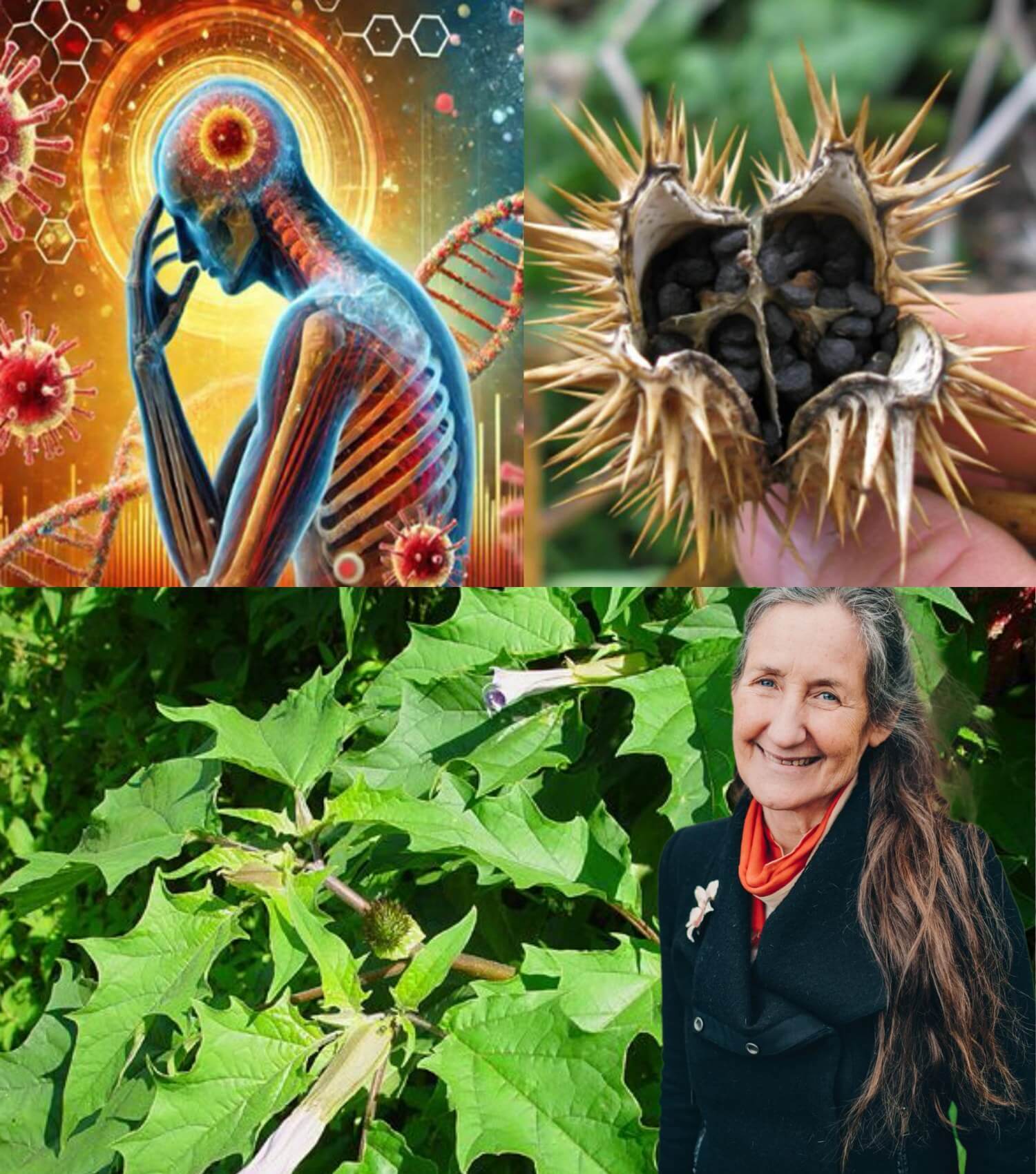Datura stramonium, commonly known as thorn apple, jimsonweed, devil’s trumpet, or simply datura, is a plant that has intrigued and warned people for centuries. Its distinctive look and powerful effects have made it a notable subject in botany, traditional healing practices, and folklore. Yet, its toxic qualities require careful respect and handling.
Botanical Description
Belonging to the nightshade family (Solanaceae), which includes familiar plants like tomatoes, potatoes, and deadly nightshade, Datura stramonium originates from the Americas but has spread worldwide. It thrives particularly well in disturbed soils such as those found along roadsides, pastures, and wastelands. The plant can grow between 1.5 and 2 meters tall. Its leaves are broad, dark green, and irregularly lobed. The flowers are trumpet-shaped, often white or pale purple, emitting a sweet yet heavy fragrance, and typically bloom during the night. The seed pods are spiny, oval-shaped capsules that split open at maturity to release numerous tiny black seeds.
Chemical Makeup and Effects
This plant contains several powerful alkaloids, including atropine, scopolamine, and hyoscyamine. These chemicals interfere with the nervous system by blocking the neurotransmitter acetylcholine, causing effects that range from mild sedation to intense hallucinations and delirium.
Historical and Cultural Significance
Datura stramonium has been used historically across various cultures for its medicinal and psychoactive qualities, often playing roles in traditional remedies and spiritual rituals.
Health Risks of Datura Stramonium
Despite its fascinating nature, datura is highly toxic due to its alkaloid content. Ingesting any part—leaves, flowers, seeds, or roots—can cause symptoms such as hallucinations, confusion, rapid heartbeat, blurred vision, dry mouth, swallowing difficulties, and in severe cases, coma or even death.
Accidental Poisoning and Safety Concerns
Although toxic, datura is sometimes cultivated for ornamental purposes, and its seeds are occasionally used in traditional medicine or recreationally for their hallucinogenic effects. This creates a significant hazard, especially in homes with children or pets who might accidentally come into contact with it.
Precautions and Response
To avoid accidental poisonings, gardeners should learn to recognize Datura stramonium and exercise caution when handling or disposing of it. Immediate medical help is crucial if ingestion or exposure is suspected, as prompt treatment can be lifesaving.
While visually appealing, datura’s toxicity means it is generally best avoided in gardens—particularly where children and pets are present. Awareness of its risks and careful management can help protect you and your family.
Datura stramonium exemplifies a plant of contrasts—striking yet hazardous, medicinal but poisonous. Its historical importance and ongoing interest highlight its complex nature. Whether studied scientifically or admired for its unique form, it stands as a potent reminder of nature’s dual power, demanding caution and respect whenever encountered.
